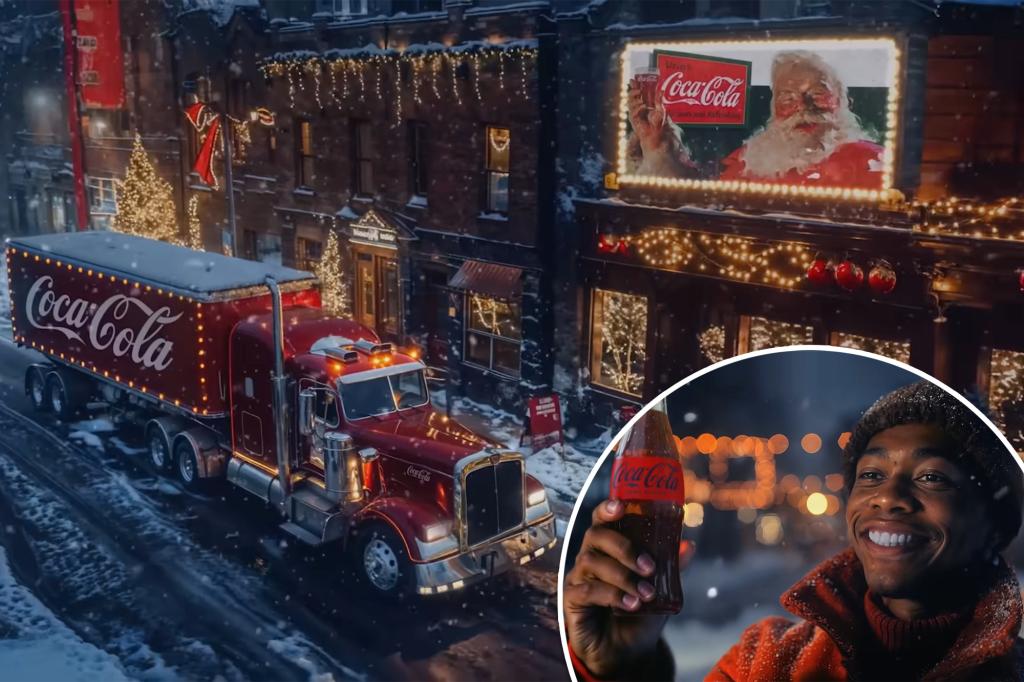Coca-Cola recently faced backlash online for creating an AI-generated Christmas commercial that many have called a “creepy dystopian nightmare.” The 15-second advert pays homage to the beverage company’s 1995 “Holidays Are Coming” campaign, featuring a fleet of red trucks delivering cola to a festive town. Despite the attempt to showcase the future of commercials using AI, many consumers criticized the clip as “garbage,” “ugly,” and “lazy,” expressing their disappointment with the use of AI in this campaign.
Some users took to social media platforms like X and YouTube to express their dissatisfaction with Coca-Cola’s AI-generated commercial. Many felt that the use of AI is a step in the wrong direction for the brand, with one user even describing it as the “death of art and our planet.” The negative feedback highlights a growing concern among consumers about the impact of AI on creativity and the potential loss of human touch in advertising.
Despite the criticism, Jason Zada, founder of the AI studio Secret Level, defended the commercial, emphasizing the human element involved in its creation. Zada explained that using generative AI for a complex project like a commercial entails more than just pressing a button and that there is still a level of human involvement that adds warmth to the final product. Coca-Cola’s Vice President and Global Head of Generative AI, Pratik Thakar, also defended the use of AI, citing the cost-saving benefits and increased production speed it offers.
Thakar highlighted the advantages of using AI in advertising, such as cost-effectiveness, speed, and the ability to produce a greater variety of content tailored to different audiences. He emphasized the importance of balancing tradition and heritage with innovative technologies like AI to stay ahead in the competitive advertising industry. Despite these arguments, some consumers still feel that the AI-generated commercial lacks the emotional depth and connection that traditional advertisements bring, leaving them feeling far from festive about the campaign.
The controversy surrounding Coca-Cola’s AI-generated Christmas commercial highlights the ongoing debate about the role of AI in creativity and advertising. While some see the potential benefits of using AI to create more efficient and personalized content, others argue that it may come at the cost of human creativity and emotional resonance. As brands continue to explore the possibilities of AI in marketing, it remains to be seen how consumers will respond to campaigns that rely heavily on artificial intelligence.


